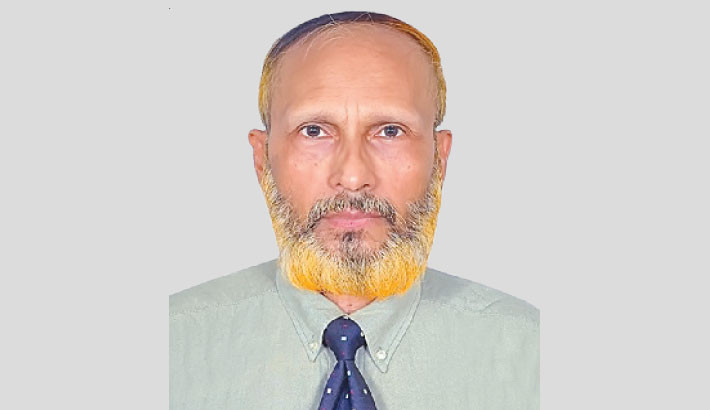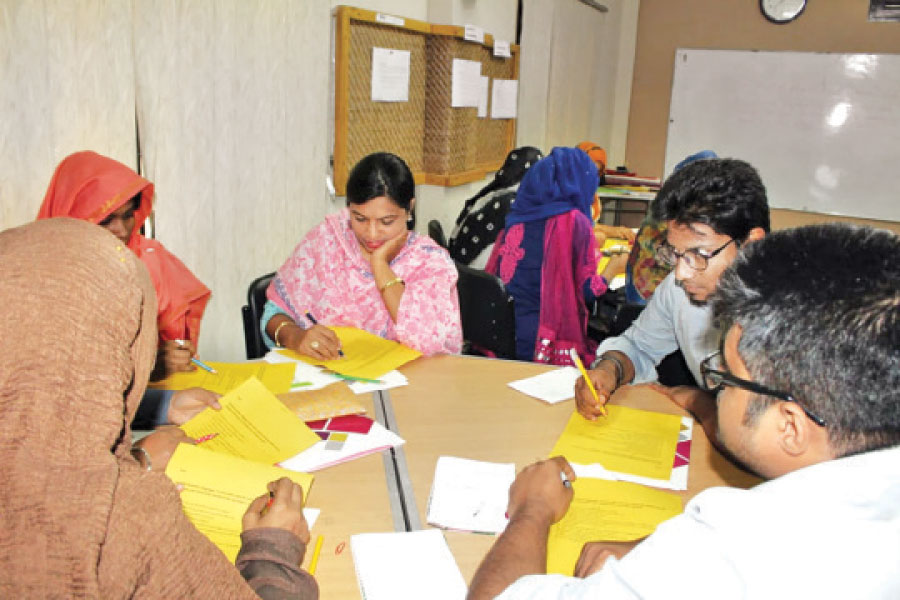
The training teachers receive for their skill development does not always guarantee that they have been equipped with the desired skills. To acquire skills in any subject, teachers have to immerse themselves in it deeply and with rapt attention. They must have genuine interest in learning it.
A teacher has to learn the ins and outs of a subject to satisfy his/her own queries as well as to make it more suitable for students. A teacher has to observe and research on how students respond to a particular subject, why they do not respond to it as expected, where the weakness lies, and what steps can fix them. They can do these practically in their own classrooms and other teaching-learning situations.
However, in training sessions, these scarcely happen. Maybe a new theory or opinion of some re-searchers or educationists is shared theoretically with the trainee teachers. In some modern trainings, some demonstration or micro-teaching sessions take place, which are also not genuine, as the situation is quite different from the real world of teachers where they meet students of different types, calibres and behaviours. Many teachers do not show interest in training because of these reasons. So, external motivation has been added to the programmes.
Now, teachers are al-lured to receive only those training which offer monetary benefits, devoid of internal motivation. As a result, the real objective of training fails. If teachers have real interest to learn something new and develop themselves professionally, they must not bother about any external motivation. Their internal motivation should lead them to undergo the process to further enhance their per-formance.

Recently, a report published in a daily newspaper presented that the country has a sufficient number of trained teachers but very few of them are skilled teachers. It is true that the number of trained teachers has increased at the secondary level, substantiated by a statistic of BANBEIS that the number of trained teachers increased 5.86 per cent in 2023 from 2019.
Different research and reports clearly show that teachers are receiving training and getting certificates, yet they lag far behind in achieving required skills, which is evident from students’ performance. We have institutions like Teachers’ Training Colleges, NAEM, and different projects like TQI, SEQAEP, and SESDP where teachers receive training, but the mercury of development still stands on the same point.
JAICA conducted a survey on secondary education in 2023 and reported that the principal chal-lenge in developing teachers’ skills was low-quality teacher training. It also revealed that BOU introduced a B.Ed course with only one online class a week that drew many teachers away from regular B.Ed courses. So, gaining certificates was more important and easier than gaining knowledge. Moreover, it also reported that NAEM and HSTTI offered training mostly on education administration and management, and effective teaching of subjects does not happen there.
Government teachers training centres (TTCs) argue that private TTCs offer degrees easily, and therefore attract more teachers to receive their degrees, ignoring government institutions. Institu-tional heads also opine that teachers receiving degrees from these institutions cannot perform well in classrooms.
It can be compared with a situation where many spectators watch football or cricket, clap, and become familiar with techniques of scoring, but they never touch the football or cricket bat them-selves. They know the techniques but are poor or zero at playing. The same thing is happening to our teachers. They receive training throughout their life and get fattened with various sorts of information. However, their real performance to teach subjects remains at a low ebb.
Training has become a big business. Institutions are making money by offering their training. Various government projects run training to do business. During the previous government, the so-called competency-based curriculum was introduced and all teachers were brought under a huge training programme—a bigger business. As classes were suspended and students, guardians, and teachers were fumbling in the dark, they went to upazila and district venues to receive training. Almost every day I used to talk to various trainers and master trainers and asked several ques-tions. Many trainers answered, “Sir, to speak the truth, the thing is still not clear to me. As we are instructed to continue the training, we are just doing it.” That was the reality, but who bothered?
Training programmes have absolutely become certificate-based. If teachers can manage a B.Ed or M.Ed certificate, they get a higher scale even though they have not enhanced their skills to deal with students effectively, go deep into the subjects, or give relevant examples. It cannot be de-nied that our training institutions cannot maintain quality. There lies no system to prove the leaks.
While recruiting any teacher, his/her skills must be tested without depending only on certificates. It will encourage them to gain skills. Candidates must show real demonstrations in classrooms and their several real classes be observed to learn how much practical skill they have acquired. If we just rely on certificates, it will further rot our system.
__________________________________
The writer is the President, English Teachers’ Association of Bangladesh. Email: [email protected]

